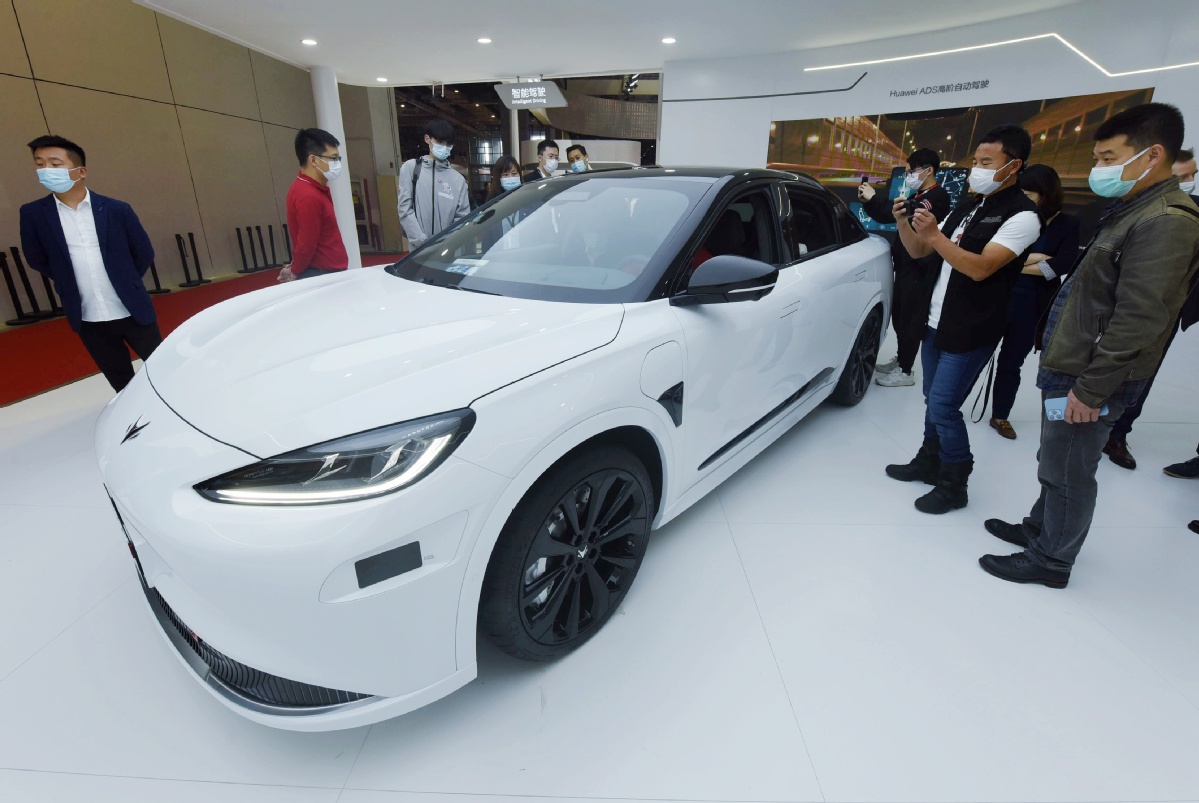Mobile computers on wheels that can't crash
By LI FUSHENG | China Daily | Updated: 2021-05-31 09:16

Tech giants zoom into carmakers' ring as digital era sinks roots deeper
From Huawei to Xiaomi, China's largest technology companies are swarming into the electric car business.
Conviction among them is growing that their tech expertise will prove instrumental in unlocking the vast potential of the e-car sector against a global backdrop of vehicles virtually becoming computers on wheels.
Tech firms' influx into the e-car sector is thus further heating up the already red-hot market where traditional auto giants such as Volkswagen as well as startups such as Tesla and China's Nio are locked in fierce competition.
Globally, e-cars are changing the auto industry that had stayed basically unchanged since German engineer Karl Benz invented the vehicle in 1885.
Now even affordable e-cars can greet the drivers when they get in, take their voice commands and even alert them when they get sleepy.
Many can have their software updated wirelessly, and some e-cars can park themselves when drivers alight and return later to pick them up at a tap on the phone screen.
It is these new features that have enticed the internet and technology companies to jump on the e-car bandwagon in the hope of picking their slice of the pie in return for their expertise in computing abilities, software and content.
"For a good smart car, the hardware is the body and the software is the soul. Without the help of the internet, car manufacturers would still follow traditional ways of thinking by replacing fuel tanks with batteries," said Zhou Hongyi, founder and CEO of Qihoo 360, a Beijing-based company that makes antivirus software.
Zhou made the remarks in May, when Qihoo 360 announced its partnership with Chinese startup Nezha. It would lead Nezha's latest financing round, and become its second-largest shareholder.
"Smart cars are expected to become one of the largest players in the field of smart technology. So network security, as well as the cybersecurity of connected vehicles, will inevitably become an important aspect of 360's future strategy," said Zhou.
The logic is shared by many household product companies jumping on the gold rush of carmaking, and sometimes even personal emulation plays a part as well.
" (Xiaomi CEO) Lei Jun is now 52 years old, one year older than me, and he is having a shot at the electric car industry. So why shan't I?" said Zhou.
Xiaomi, China's largest smartphone maker by shipments, unveiled its carmaking plan in March. Co-founder and CEO Lei called it his final startup project, saying he would lead the standalone division and the first vehicle, which can be a sedan or an SUV, is expected to hit the market in three years.
"From smartphones to smart home appliances, and smart vehicles, we would like to offer our customers better experience enabled by our technology," said Lei.
























